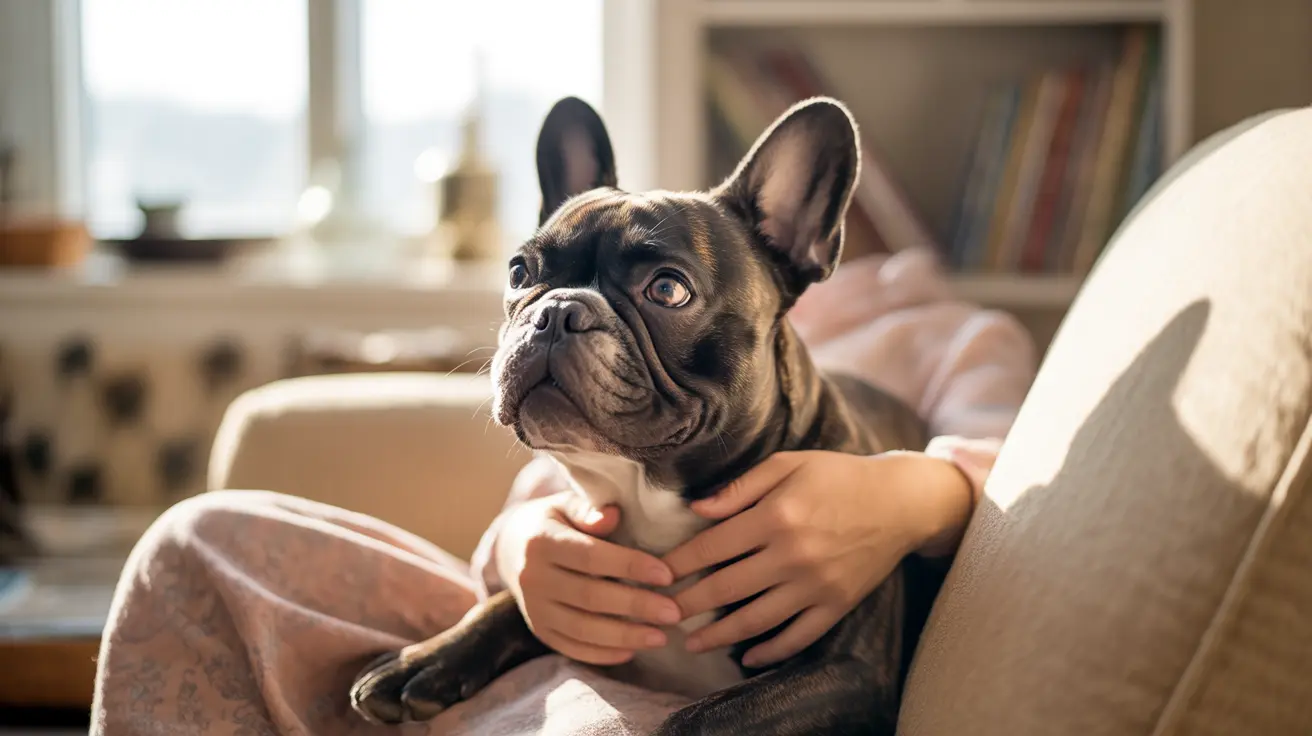The Ancient Pack Instinct: A Natural Behavior
Your dog's tendency to lay on you stems from deeply rooted pack instincts inherited from their wolf ancestors. In the wild, pack animals sleep huddled together for warmth, protection, and social bonding. Despite thousands of years of domestication, these instincts remain strong in our modern companion dogs.
When your dog chooses to lay on you, they're treating you as a trusted member of their pack, demonstrating both their acceptance of you as family and their desire to maintain close physical connections, just as their ancestors did.
Expressing Love and Security Through Touch
Dogs are inherently social creatures who form strong emotional bonds with their human families. When your dog lays on you, they're expressing deep affection and trust. This behavior releases oxytocin – often called the "love hormone" – in both you and your dog, strengthening your mutual bond.
Physical contact with their trusted human also provides dogs with a sense of security and comfort, particularly during times of stress or anxiety. This is especially true for dogs who have experienced trauma or separation anxiety in the past.
The Comfort and Warmth Factor
Your body heat and heartbeat create an incredibly comforting environment for your dog. When they lay on you, they're seeking both physical warmth and emotional reassurance. Your familiar scent, steady breathing, and consistent heartbeat can have a calming effect on your pet.
Different dogs may prefer specific spots on your body for various reasons. Some might choose your chest to feel your heartbeat, while others prefer your feet to maintain a protective position while staying close.
Protection and Vigilance: Your Dog's Guardian Instinct
When your dog lays on you, they might also be expressing their protective instincts. By positioning themselves on or near you, they're placing themselves in an optimal position to guard you against potential threats. This behavior demonstrates their loyalty and dedication to keeping their beloved human safe.
Some dogs will strategically choose positions that allow them to monitor entrances or potential sources of danger while maintaining physical contact with their owner.
When to Welcome or Redirect This Behavior
While having your dog lay on you can be a wonderful bonding experience, it's important to establish boundaries that work for both you and your pet. If the behavior becomes excessive or disruptive, you can gradually train your dog to enjoy alternative resting spots while maintaining your close bond in other ways.
Monitor any sudden changes in this behavior, as increased clinginess could indicate underlying anxiety or health issues that may require professional attention.
Frequently Asked Questions
Why does my dog like to lay on me so often?
Your dog lays on you frequently because it's a natural way for them to show affection, seek comfort, and maintain their pack bond with you. This behavior releases feel-good hormones for both you and your dog, reinforcing your emotional connection.
Is my dog laying on me a sign of affection or protection?
It's often both. Dogs lay on their owners to show love and trust while also maintaining a protective position. This dual-purpose behavior reflects their role as both a loving family member and a loyal guardian.
How does my dog laying on me help reduce their anxiety?
Physical contact with you provides your dog with comfort through your familiar scent, warmth, and heartbeat. This close proximity releases calming hormones and helps them feel secure, especially during stressful situations.
Why do dogs prefer certain spots on the body, like the chest or feet, to lay on?
Dogs choose specific spots based on comfort, warmth, and functionality. The chest area allows them to feel your heartbeat and breathing, while laying at your feet lets them maintain a protective position while staying close.
Should I let my dog sleep or lay on me every night?
This is a personal choice that depends on your comfort level and sleep quality. If both you and your dog sleep well with this arrangement, it can be a healthy bonding experience. However, if it disrupts your sleep or causes discomfort, it's perfectly fine to establish boundaries and train your dog to sleep elsewhere.






